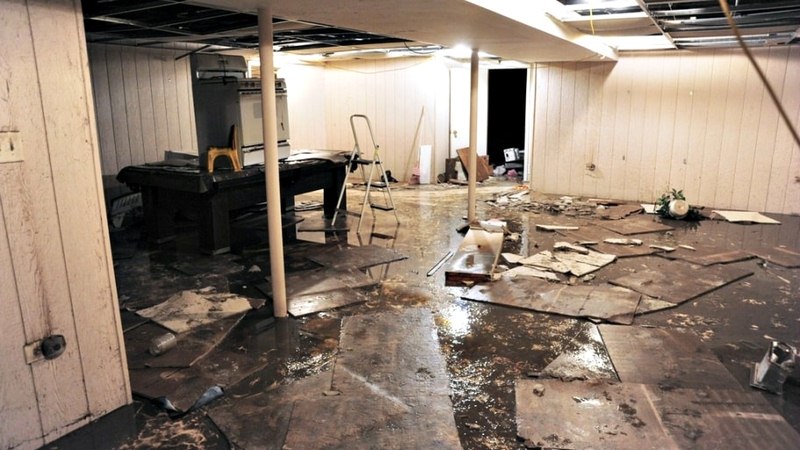Water damage can be defined as several possible losses caused by water interfering where it will enable outbreak onto materials or systems and cause destruction, leading to wear and tear such as rotting of natural materials like wood, or rusting of metal and many other negative effects.
If not treated prior to the incident, water damage has been found as one of the major contributors to loss of property.

In the United States weather patterns in some areas can be unpredictable and, in some cities, environmental catastrophes such as flooding has happened numerous times, causing people homes to be damaged and in worse-case scenarios washed away with all the other debris from buildings and properties. Find out more here.
If it now water damage that is caused by such weather-related events as flooding, then it can be various other reasons. Such as:
- Plumbing system Issues.
- Bursting or leaking pipes.
- Faulty or malfunctioning household appliances
- Build-up of water in areas such as crawl spaces, basements and attics.
- Issues with the Heating, ventilating and air conditioning unit (HVACs)
- Broken or overflowing dishwashers and washing machines.
- Clogged toilets.
Read Also:
There are 3 Categories of Water Damage:
Category 1: also referred to as ‘clean-water’ damage. Refer to water damage that does not pose any significant threat to people. Issues such as a broken water supply line, or a leaking tub or sink and even an appliance malfunction involving said supply lines.
Category 2: also referred to ad ‘grey water‘. This type of category of damage includes slightly more significant water damage that includes chemical, physical or biological contaminants. Which can lead to illness or discomfort and does affect humans.
The water carries with it various microorganisms such as from toilet bowls with urine only (no faeces), sewerage failures or even dirty water that is discharge from washing machines and dishwashers.
Category 3: Is known as ‘black water’ damage. This is the worst kind and unacceptably unsanitary.It contains contaminated agents including harmful fungi and bacteria which can cause severe sickness to human beings.
This type of damage would include things like waste from sewage, rising water from rivers or streams, seawater, standing water or ground surface water.

What to do When water Damage Occurs
The best thing to do is hire a professional’s services in your area that specialise in this type of incidences San Diego Dry Express to seek out the cause of damage and fix it. It is crucial to do this as soon as possible to avoid any further damage or a category 1 becoming a category 2 or 3 situation.
They minimise the damage because they have the right equipment and try and restore the damage done by things like water, fire, mould to your house or property. A lot of people delay the process of calling a professional and it make the situation worse.
The immediate step to take when you do get any kind of water damage in your home is to turn off all the water supplies in and out of the house. The next thing to do is check where the leak is happening and try and catch as much water as you can with a bucket or basin so it limits the dripping to the floor or any surface.
If it is a case of water damage to any electrical units in the property, it is always best to step away from the vicinity and call the professionals who are qualified to deal with such situations.
Sometimes if the damage is not visible, it can be hidden. You can tell this by checking for unexplained odors coming from walls or ceilings or the basements and attics.
This could be a sign of bacteria growth, and it would be advisable to get this checked or if you can do something about it on the interim. Read more here: https://www.hunker.com/13422374/how-to-remove-the-smell-of-water-damage-from-a-home
If called sooner rather than later, professional companies that deal with these issues on a daily basis, to fix the problems, can save you a lot of time, energy and financial damage as well. They can help with water damage repairs, restoration of water and even damage from floods in a number of ways:
- Drywalling without removing the walls.
- Dehumidification via specialized equipment.
- Drying your real hardwood floors by extracting any moisture (including the cracks.)
- Drying the carpets for you while in-place.









